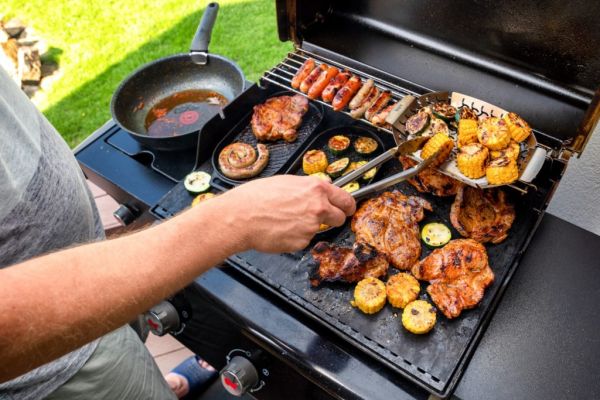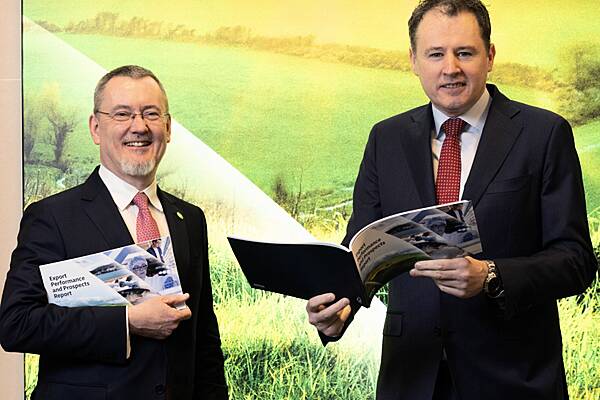End of Tenancy Cleaning London have shared some tips to ensure food hygiene and cleaning tips that may help prevent the risk of food poisoning and other barbecue dangers this summer.
1. Ensure You Thoroughly Defrost Meat Beforehand
Many of us may want to get our meat on the BBQ as quickly as possible to make sure everything is ready in time. However, if using meat from the freezer it is important to check that your meat is all thoroughly defrosted before cooking.
Frozen meats tend not to cook thoroughly on the grill, so you should ensure you plan ahead and defrost food overnight in the fridge, taking care to make sure juices do not spill or leak onto other food. It is always best to place these at the bottom of the fridge in a dish with a lid or rim.
2. Clean The BBQ Grill
A study found that only 36% of people clean their BBQ more than twice a year, which is concerning as the same study found that outdoor grills have 124% more germs than the surface of a toilet seat.
As a result, cleaning your BBQ grill is pivotal. A clean grill won't cause foods to stick as easily, reducing the risks of dangerous fire flare-ups, and will also provide better tasting and more hygienically prepared food. To clean it, you can simply use some baking soda, leave it on for about 10 minutes, and scrub the grill down with warm water.
3. Clean The BBQ Basin
It is crucial to clean the basin, or drip tray, of your barbecue. Use a scraper and a brush to get any burnt food particles and grease out of the base of your BBQ, as this could eventually mount up, causing the grill to catch fire during cooking. This method will prevent bacteria from spreading as well as prevent a potential fire hazard.
4. Clean Any Built-In Side Tables In Your BBQ
Studies have shown that the built-in side tables on BBQs are known to gather a lot of bacteria. Ensure you get these surfaces clean and sanitised even if they look clean, always clean these before cooking, and especially after raw meat has been on the surfaces.
5. Cook BBQ meat in the oven first
Sometimes, grilling meat on the BBQ can mean it isn’t always cooked thoroughly, which can result in germs such as Salmonella, E. coli, and Yersinia, which can cause illness. Instead, try cooking your meat in the oven, and giving it a final finish on the BBQ. Using this method can make sure your friends and family still experience the lovely BBQ taste, whilst getting fully cooked tasty meat.
6. Use Different Plates And Utensils To Avoid Cross-Contamination
If you have a lot of guests to cook for, hosting a BBQ can be a hectic experience with lots to cook all at once. However, it is crucial to take the time to ensure you are not using the same plates and utensils for raw meat and cooked foods.
Having different utensils and plates for raw meat, cooked meat, and ready-to-eat foods such as salad is essential to ensure no bacteria can get into your freshly prepared foods.
7. Avoid Crowding The BBQ
Cooking too much at once on your BBQ and leaving little to no space around meats is dangerous, as it may result in the food not being cooked through properly. Make sure to leave enough room for each piece of meat to cook. If you have a large amount of food to cook, doing this in several batches rather than all at once will be safer and cleaner.
8. Don't Reuse Your Marinades
Marinating meat and vegetables can make them taste amazing, but it is important that you are doing it safely. If your marinade has touched raw meat in any way, you must make sure not to put it onto raw vegetables, as they could develop harmful bacteria.
If you want to use marinade for both raw meat and other foods, make sure to make separate batches in advance to avoid cross contamination. If you really don’t want to waste leftover marinade you can reuse it, but ensure that you boil it first to kill any bacteria.
9. Use And Clean Your Food Thermometer
Food thermometers are a great tool for ensuring your BBQ food is cooked thoroughly to the correct temperature and ready to eat. However, it is also important to clean the thermometer regularly after each use to prevent cross-contamination. You can do this by using hot soapy water to lather the stem of the thermometer and rinse it off before using again .
10. Don't Eat Foods/Burgers That Have Been Sitting Out
On a hot summer's day, it is always best to cool down food inside at room temperature if it isn't being eaten straight after cooking. If you are not going to eat it, then refrigerate it. Cool the food inside at room temperature for up to 90 minutes, then put it in the fridge.
Hot food which has just been cooked should never go straight into the fridge, as it will not be able to cool evenly, which could allow bacteria to grow. Not only is keeping your leftover food inside to cool down safer hygienically, but also prevents build-up and mess outside while you enjoy your barbecue!
Statement
Mira Yordanova from End of Tenancy Cleaning London shared her thoughts on these tips, saying, "With barbecue season well and truly here, it is important that we are all aware of the importance of cleaning our barbecues and maintaining hygienic preparation. You may be excited to get the BBQ out and start cooking, but ensure that you have cleaned it beforehand to prevent bacteria growing and dangerous build ups that could cause flare ups when cooking. Baking soda, vinegar, or even lemon and salt can be cheap effective ways to scrub your barbecue.
"Clean and hygienic food preparation is also key. There are numerous tips here that can help ensure you avoid cross contamination, which can harbour bacteria if not followed. Never use the same utensils for raw and cooked meat, and always ensure you clean any utensils used for raw meat in hot soapy water after use."
Read More: Top Five Most Popular Colours To Wear To A Wedding, According To Study
© 2023 Hospitality Ireland – your source for the latest industry news. Article by Dave Simpson. Click subscribe to sign up for the Hospitality Ireland print edition.








